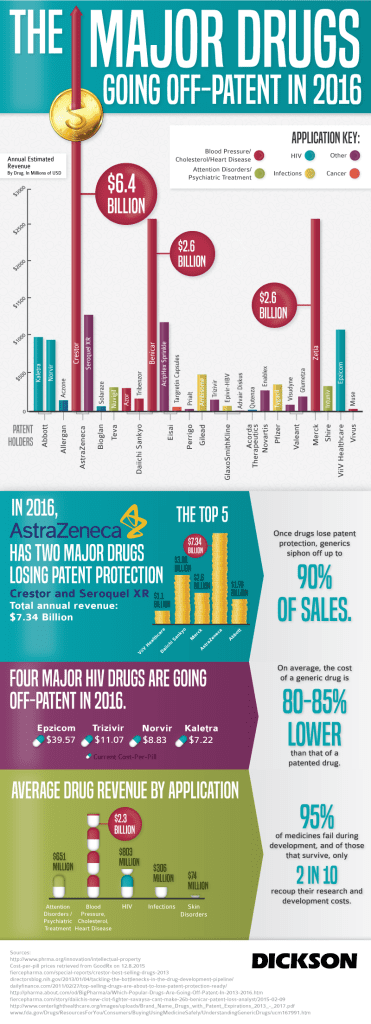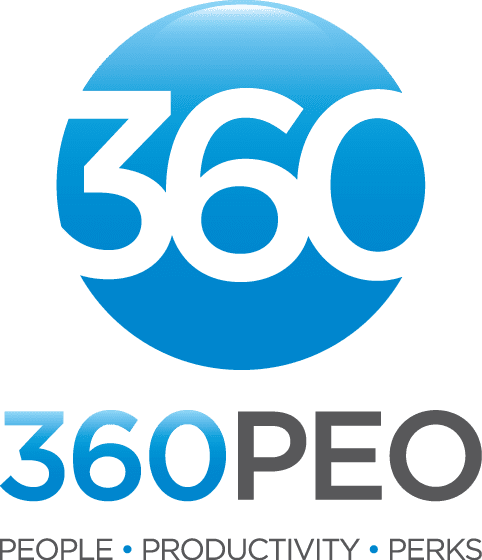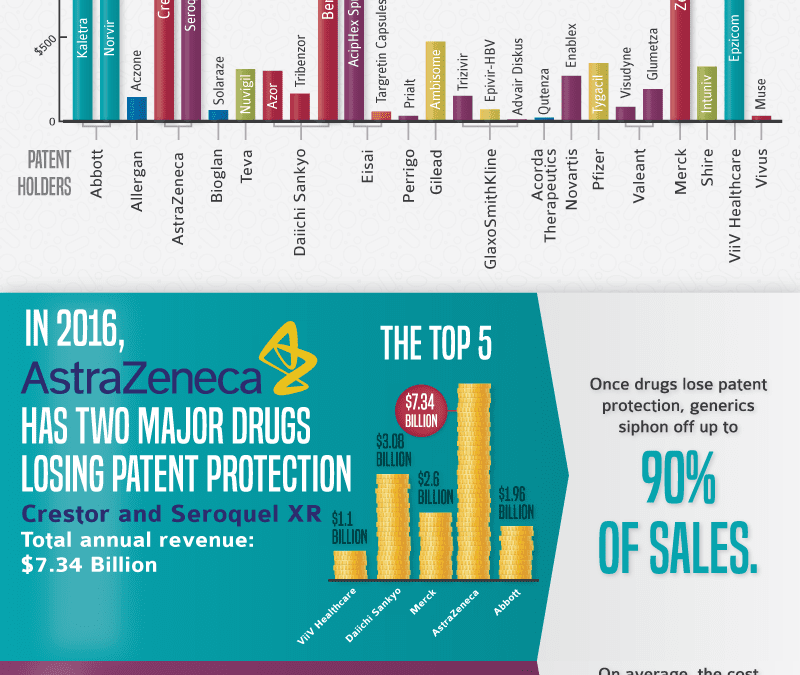Brand Name Drugs Are a Waste of Money?
Generics or Brands? This is not a new question and has been discussed. Our blog post “Generic Drugs vs. Brand Name – Are there any differences?” was covered in 2009. But since last decade most brand drug’s patents have fallen of a cliff. See popular Rx expirations below and infographic of “Major Drugs Going Off-patent in 2016.”
- Lipitor
- Seroquel
- Crestor
- Prevacid
- Nexium
- Zyprexa,
- Plavix
- Singulair
- Lexapro
- Enbrel
According to Vox article “Stop wasting money on brand-name drugs “On average, generics cost 80 to 85 percent less than name-brand medicines, according to the Food and Drug Administration (FDA). And buying unbranded drugs isn’t like opting for cheap toilet paper or no-name face cream: Less expensive here doesn’t necessarily mean lower quality.”
Many people have heard that switching to a generic medication will save them money. One of the questions we hear most often is, “How do generic medications compare to their brand name counterparts?” Knowing the facts about generics versus brand names can help make us all better consumers.
What’s the difference between generic and brand-name drugs?
Generic medicines are chemically equivalent to the original brand-name drugs and work just as well for nearly all patients. Many people are concerned that because generic drugs are often much cheaper than the brand-name versions, the quality and effectiveness have been compromised to make a less expensive product. The FDA requires that generic drugs be as safe and effective as the original brand name drugs. Generic drugs are copies of brand name drugs that have exactly the same dosage, intended use, effects, side effects, route
of administration, risks, safety, and strength as the original drug. In other words, the pharmacological effects of generic medications are exactly the same as those of their brand name counterparts. It is important, however, to check with a Physician and have a conversation about alternatives since generic drugs may contain slightly different INACTIVE ingredients. These are things like binding materials, dyes, preservatives, and flavors.”
Another common myth is that generic drugs take longer to work. The FDA requires that generic drugs work as fast and as effectively as the original brand name products.
When a drug loses patent protection, often only one generic version is on sale for the first six months, so the price falls a little bit initially. Then, several other generic makers typically jump in, driving prices down dramatically.
What are the actual costs differences?
Last year, the average generic prescription cost $72, versus $198 for the average brand-name drug, according to consulting firm Wolters Kluwer Pharma Solutions. Those figures average all prescriptions, from short-term to 90-day ones.
Average copayments last year were $6 for generics, compared with $24 for brand-name drugs given preferred status by an insurer and $35 for non-preferred brands, according to IMS Health. Protonix, for severe heartburn, now costs just $16 a month for the generic, versus about $170 for the brand name. And of the top sellers that soon will have competition, Lipitor retails for about $150 a month, Plavix costs almost $200 a month and blood pressure drug Diovan costs about $125 a month. For those with drug coverage, their out-of-pocket costs for each of those drugs could drop below $10 a month.
All patients are encouraged to discuss generic alternatives with their physicians prior to filling a prescription. The doctor and the patient should agree on the best course of treatment for any diagnosed medical condition.
Resource:
Discount Rx Card: www.bonusbenefit.com
Pharmacy and Rx Costs Look Up: http://www.rxpricequotes.com

